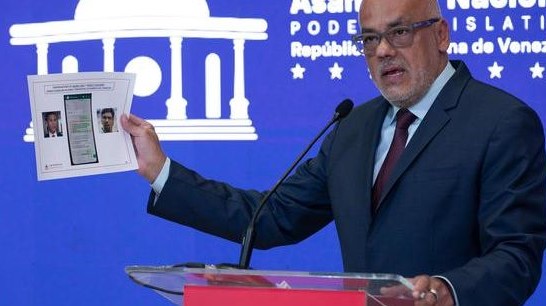
This is an extract of our PRR team’s analysis for last week’s report, diving into the motivations and possible outcomes of the government’s aggressive move against Freddy Guevara and several members of the opposition.
By Caracas Chronicles
Jul 19, 2021
Not only hurricanes are shaking the Caribbean basin these days. With the assassination of Haitian president Jovenel Moïse in Port-au-Prince still fresh, fabricated accusations of an attempted magnicide launched against Freddy Guevara and other important members of Voluntad Popular resounded in Caracas. The unprecedented day of nationwide protests in Cuba, last Sunday, raised the alarm within the Díaz-Canel government, which is to be expected as the Cuban dictatorship has played a key role in the Venezuelan crisis, and has no doubt learned not to give opposition forces a chance to show their strength in the streets – and as we mention in our latest Political Risk Report, they’re telling Maduro to waste no time in crushing the opposition here, too. All this with COVID-19 still ravaging the region and keeping tourism and many businesses on hold, and after a recent show of brute force displayed by the Nicaraguan regime on the western shore of our common sea.
Yes, this sounds a bit like Rubén Blades’s 1981 song Tiburón, written in the heat of the Cold War. But beyond the metaphors, what we see is two allied authoritarian regimes reacting to relative threats and gathering strength to improve their chances of overcoming them. To inhibit the Cubans from escalating the unrest, the Díaz-Canel government deployed organized mobs, police and military to carry out massive detentions while shutting down the internet that was so useful in spreading the call to protest on the streets. To change the perception of a weak regime spread over two days of defiance by gangs in southwestern Caracas, the chavista government repeated the pattern of inventing conspiracy theories and jailed opposition politicians to justify it, no matter how weak the evidence they’re showing through the propaganda apparatus is.
Both Cuba and Venezuela are trusting old tricks and proven methods to handle new situations. Both governments should think that this will yield the results they want and that they won’t pay a high price in terms of domestic resistance or international pressure. The soft response from countries like Canada, Argentina, and Spain to what happened in Cuba just showed how much an authoritarian regime can get away with repression in our times. And Maduro charged against Freddy Guevara a few days after he met European Union representatives in Caracas. Security forces took Guevara in broad daylight, in front of cellphone cameras, and kept him incommunicado for two days after taking him to a first hearing between midnight and dawn. Maduro responded to the humiliations inflicted by a guerrilla front in Apure and a gang in Caracas by taking—at gunpoint—people who would sit at the negotiation table, in front of European mediators.
We can say that the Maduro regime keeps accumulating more tokens to exchange in an eventual negotiation, and even widening the crevasses within the opposition by targeting Voluntad Popular, the organization Leopoldo López and Juan Guaidó come from. But we can also speculate that the Venezuelan government doesn’t expect to concede an inch in those negotiations, and for that reason, believes sanction relief is unlikely in the first place. In a way, they’re fast-forwarding the likely outcome of negotiations at the expense of time they could’ve bought (how much did they need that time?).
…
Read More: Caracas Chronicles – A negotiation Killer?
…

